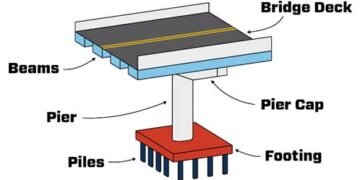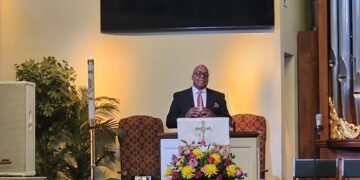Article was published in print before the fiscal court passed the moratorium on Oct. 28
(This article first appeared in the November print edition of the Hendersonian.)
Cordelio Energy responded to the probability of a two-year moratorium on any applications or permits for wind energy conversion systems with a statement encouraging the Henderson City-County Planning Commission “to move forward promptly to perform their work.”
On Oct. 14, the Henderson County Fiscal Court preliminarily approved a two-year moratorium on any new applications for any WECS systems to any county government body. The vote was unanimous, and it was expected that the final vote at the Oct. 28 meeting would be the same. (Indeed, the fiscal court passed the moratorium 5-1 on Oct. 28)
The Hendersonian reached out to Cordelio for a response. The company’s statement came from Tim Vought, who is the vice president for development.
Opponents in the community have said that the planning commission, in writing its WECS ordinance, should take its time to get it right. There is only one other county in the state with any sort of wind energy system ordinance. Vought’s statement, however, says that there are many rules in effect that could be used as examples.
“Wind energy facilities have been successfully deployed across the US for several decades,” said Vought’s statement. “We are confident setbacks and other regulations can be adopted to allow property owners within Henderson County who are interested in hosting energy facilities the ability to do so. There are numerous examples from nearby jurisdictions where ordinances strike an appropriate balance to protect interests of both those who wish to host facilities and those who do not.”
Additionally, Vought said that even without tax credits and incentives—which are scheduled to end by 2030—wind energy and other renewables will continue to be built.
And he also wrote that Cordelio will continue to work towards building a significant investment to the area and numerous public meetings and hearings are planned “where information about the industry and Cordelio’s experience will be shared.”
The fiscal court in late July approved a resolution for a one-year WECS moratorium and sent the item to the planning commission for its consideration and recommendation. At its Sept. 2 meeting, the planning commission approved a recommendation for a two-year moratorium. After that meeting, planning commission staff had to transcribe minutes and write the findings of fact before those documents could be approved at its Oct. 7 meeting and then sent back to the fiscal court.
After the Oct. 14 fiscal court meeting , Niagara resident Sherri Alderson, who is opposed to Cordelio’s plan, said she was generally pleased with the first vote, adding the windmill regulations are a decision for the entire community, not just those landowners who have signed leases with Cordelio. She said the extra time will allow more people to take part in the process.
She said many are just now becoming fully aware of the issue. More public involvement will also supply decision makers with more needed information, she said.
“It’s just a big deal,” she said. “I want to make sure they have all the information.”
Deirdre McConathy, another vocal opponent, said the two years should allow sufficient time so that fiscal court does “not race to develop” a poorly worded ordinance that “truly does not protect Henderson County residents.”
Another resident, Shannon Hill, said she was disappointed that no mention of a windmill prohibition, which was mentioned by wind opponents at the planning commission’s Sept. 2 public meeting, but ultimately did not make it into the planning commission’s recommendation or the ordinance preliminarily passed on Tuesday by fiscal court.
Read Vought’s statement in its entirety below:
“Cordelio understands that regulations are needed before an application for a wind energy facility can be submitted for consideration within Henderson County. The currently proposed ordinance would establish a moratorium for up to two years to allow the Planning Commission and Fiscal Court to develop and adopt those regulations; it will end sooner if that process is completed in less than 2 years. We encourage staff and members of the Henderson City-County Planning Commission to move forward promptly to perform their work. Wind energy facilities have been successfully deployed across the US for several decades. We are confident setbacks and other regulations can be adopted to allow property owners within Henderson County who are interested in hosting energy facilities the ability to do so. There are numerous examples from nearby jurisdictions where ordinances strike an appropriate balance to protect interests of both those who wish to host facilities and those who do not.
Recent federal laws and IRS guidelines have established a phaseout of tax credits and other incentives for renewable energy facilities by the end of 2030. Even without tax credits, Cordelio believes that wind and other renewable energy facilities will continue to be built after this date.
Cordelio is interested in working with residents of Henderson County to bring a significant economic investment to the area. There will be numerous public meetings and hearings where information about the industry and Cordelio’s experience will be shared. We are confident that wind, solar and battery energy storage facilities can be safely installed and operated. Facilities such as the Rock Bluff Energy Park will demonstrate that Henderson County is interested in looking forward to make sure that businesses will have the electricity needed to power them.”
–Tim Vought, Cordelio vice president for development






















